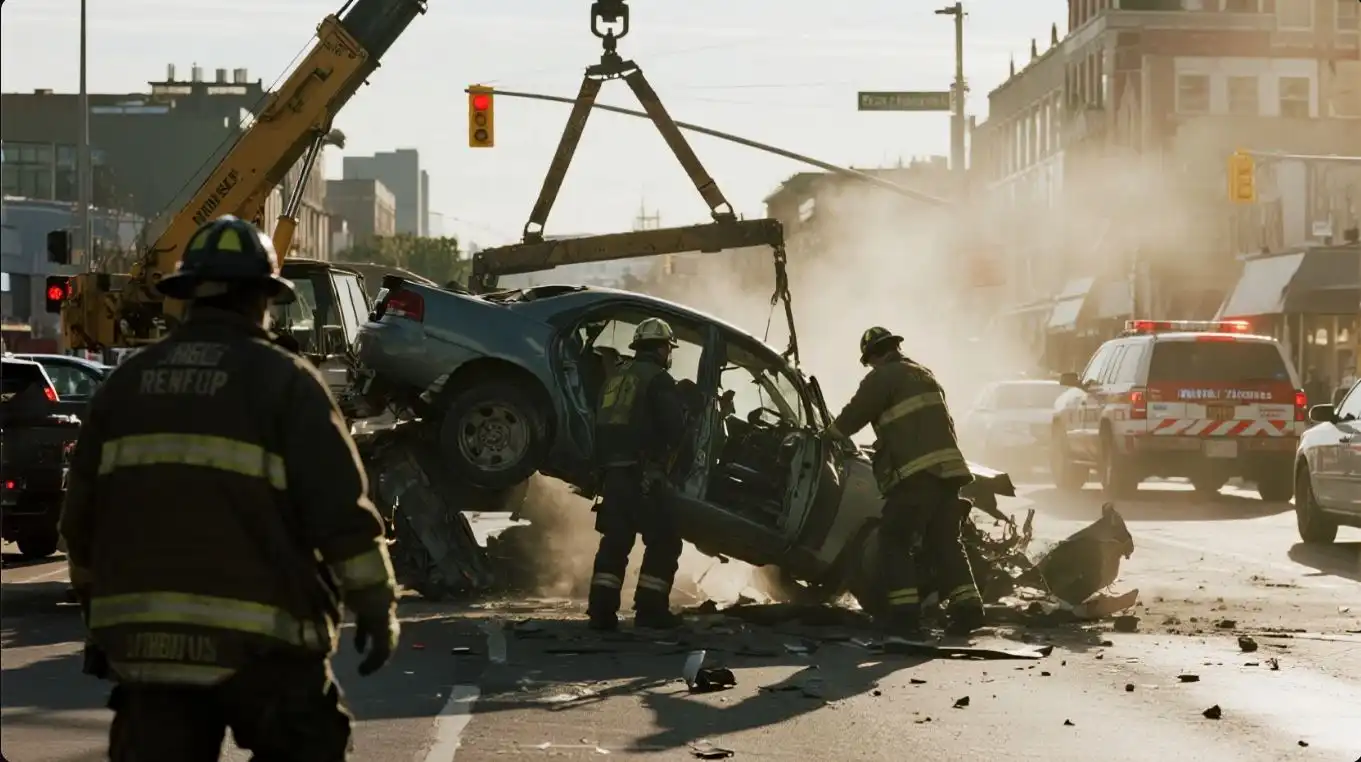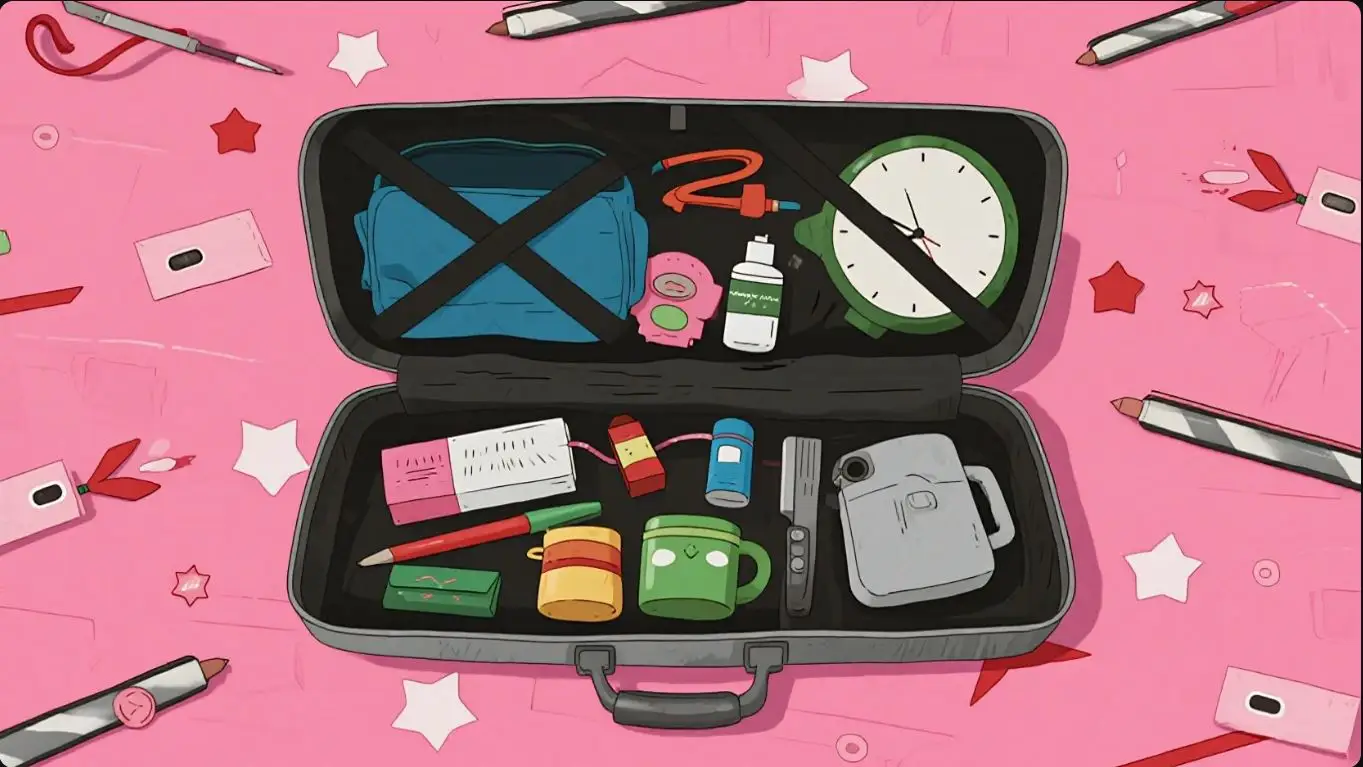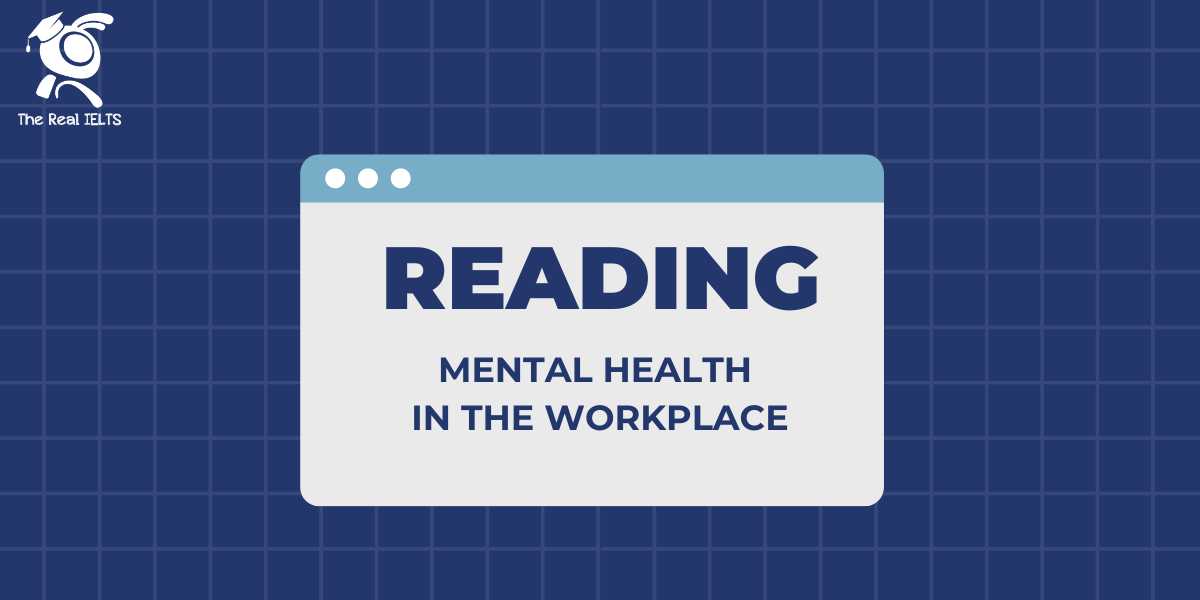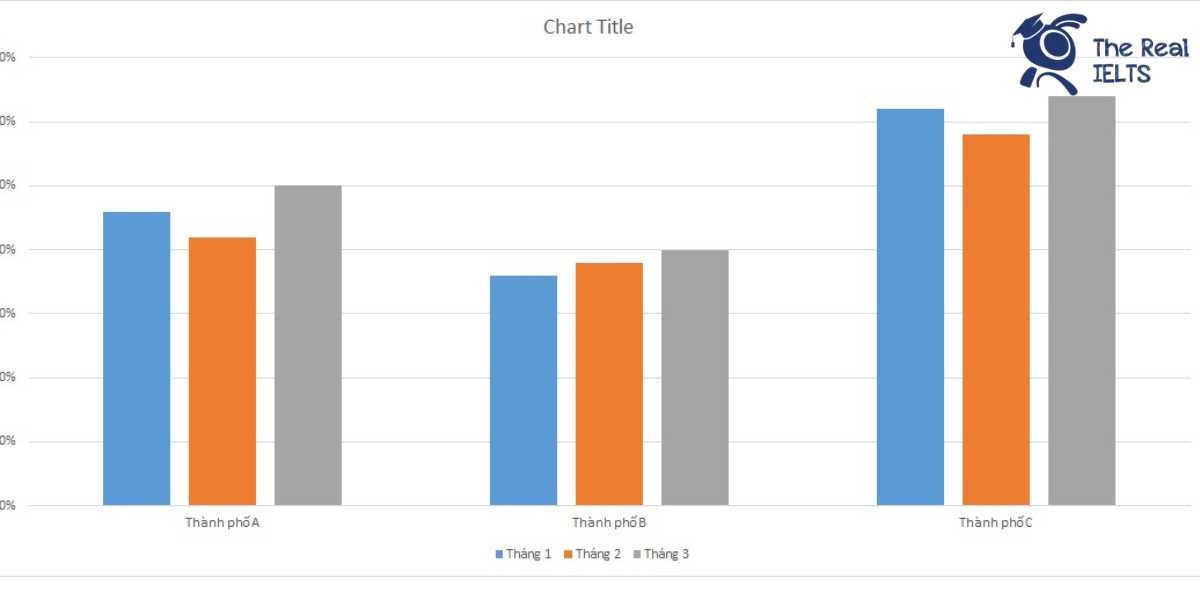Đọc thêm: 101 Bài Tiếng Anh Giao Tiếp Cơ Bản Full
Traffic Accidents
- Q: What should you do immediately after a car accident?
A: Stay calm, check for injuries, call emergency services, and exchange information with the other driver. - Q: How can you avoid rear-end collisions?
A: Keep a safe following distance, stay alert, and brake gradually. - Q: What is a common cause of motorcycle accidents?
A: Lack of visibility from other drivers and speeding. - Q: Should you move your car after a minor accident?
A: If it’s safe and the car is drivable, move it to the side to avoid blocking traffic. - Q: What information should you exchange after a car accident?
A: Names, contact details, insurance information, and vehicle details. - Q: Why is it dangerous to drive in heavy rain?
A: Reduced visibility and slippery roads increase the risk of accidents. - Q: What is a hit-and-run accident?
A: When a driver leaves the scene of an accident without providing information or assistance. - Q: How can you prevent distracted driving accidents?
A: Avoid using phones, eating, or other distractions while driving. - Q: What should you do if you witness a car accident?
A: Call emergency services, provide first aid if trained, and stay safe. - Q: Why do accidents often happen at intersections?
A: Due to confusion, failure to yield, or running red lights.
Workplace Accidents
- Q: What is a common workplace accident?
A: Slips, trips, and falls due to wet floors or cluttered areas. - Q: How can you prevent accidents in a factory?
A: Use proper safety gear, follow protocols, and maintain equipment. - Q: What should you do if a coworker is injured at work?
A: Report the incident, provide first aid if trained, and call for help. - Q: Why are ladder accidents common in construction?
A: Improper use, unstable ladders, or lack of fall protection. - Q: What is a safety data sheet (SDS)?
A: A document that provides information on handling hazardous chemicals safely. - Q: How can you reduce electrical accidents at work?
A: Use insulated tools, avoid water near electrical equipment, and follow lockout-tagout procedures. - Q: What is the role of a safety officer in preventing accidents?
A: They enforce safety rules, conduct inspections, and train employees. - Q: Why is fatigue a cause of workplace accidents?
A: It reduces focus and reaction time, increasing error risks. - Q: What should be in a workplace first aid kit?
A: Bandages, antiseptic wipes, gloves, scissors, and a CPR mask. - Q: How can you prevent accidents in an office?
A: Keep walkways clear, secure cables, and ensure proper lighting.
Home Accidents
- Q: What is a common cause of home accidents?
A: Falls, especially on stairs or slippery surfaces. - Q: How can you prevent burns in the kitchen?
A: Use oven mitts, keep flammable items away from stoves, and turn pot handles inward. - Q: Why do children often have accidents at home?
A: Curiosity, lack of supervision, or unsafe environments. - Q: What should you do if someone is choking?
A: Perform the Heimlich maneuver or call emergency services. - Q: How can you prevent electrical shocks at home?
A: Avoid overloading outlets and keep electronics away from water. - Q: What is a fire hazard in the home?
A: Faulty wiring, unattended candles, or overloaded power strips. - Q: How can you make stairs safer to prevent falls?
A: Install handrails, ensure good lighting, and keep stairs clear. - Q: What should you do in case of a gas leak?
A: Evacuate, avoid using electronics, and call emergency services. - Q: Why are bathrooms a common place for accidents?
A: Wet floors and lack of grab bars increase the risk of slips. - Q: How can you childproof a home to prevent accidents?
A: Use outlet covers, secure furniture, and lock cabinets with hazardous items.
General Safety and Accidents
- Q: What is an accident?
A: An unexpected event causing injury or damage. - Q: Why is first aid training important?
A: It equips you to respond effectively to injuries until help arrives. - Q: What is the purpose of a fire extinguisher?
A: To put out small fires in emergency situations. - Q: How can you prevent sports-related accidents?
A: Wear protective gear, warm up properly, and follow rules. - Q: What is a concussion?
A: A brain injury caused by a blow to the head. - Q: How can you prevent drowning accidents?
A: Supervise children near water, wear life jackets, and learn to swim. - Q: What should you do if someone is bleeding heavily?
A: Apply pressure to the wound and call for medical help. - Q: Why is it dangerous to ignore safety warnings?
A: They alert you to risks that could cause serious accidents. - Q: What is a near-miss accident?
A: An incident that could have caused harm but didn’t. - Q: How can you stay safe during an earthquake?
A: Drop, cover, and hold on under sturdy furniture.
Emergency Response
- Q: What is the emergency number in the United States?
A: 911. - Q: What should you tell emergency services after an accident?
A: Your location, the nature of the accident, and any injuries. - Q: Why is it important to stay calm during an accident?
A: It helps you think clearly and act effectively. - Q: What is CPR?
A: Cardiopulmonary resuscitation, a technique to restore breathing and circulation. - Q: When should you move an injured person?
A: Only if they’re in immediate danger, to avoid worsening injuries. - Q: What is the recovery position?
A: A side-lying position to keep the airway clear for an unconscious person. - Q: How can you help someone having a seizure?
A: Clear the area, cushion their head, and time the seizure. - Q: What is shock in medical terms?
A: A life-threatening condition where the body doesn’t get enough blood flow. - Q: How can you treat a minor burn?
A: Cool it with running water for 10 minutes and cover with a clean cloth. - Q: What should you do if someone is poisoned?
A: Call poison control or emergency services immediately.
Accident Prevention
- Q: How can you prevent accidents in a warehouse?
A: Use proper lifting techniques and keep walkways clear. - Q: Why is wearing a seatbelt important?
A: It reduces the risk of injury or death in a car accident. - Q: How can you prevent bicycle accidents?
A: Wear a helmet, use lights at night, and follow traffic rules. - Q: What is defensive driving?
A: Driving to anticipate and avoid potential hazards. - Q: How can you prevent accidents in a laboratory?
A: Wear protective gear, handle chemicals carefully, and follow protocols. - Q: Why is it important to maintain machinery?
A: To prevent malfunctions that could cause accidents. - Q: How can you reduce the risk of falls in the elderly?
A: Remove tripping hazards and install grab bars. - Q: What is the purpose of a safety harness?
A: To prevent falls when working at heights. - Q: How can you prevent accidents during hiking?
A: Stay on marked trails, carry a map, and check the weather. - Q: Why is it dangerous to mix alcohol and driving?
A: Alcohol impairs judgment and reaction time, increasing accident risk.
Accident Investigation
- Q: Why is it important to investigate accidents?
A: To identify causes and prevent future incidents. - Q: What is a root cause analysis?
A: A method to find the underlying cause of an accident. - Q: Who should report a workplace accident?
A: The injured person or a witness, to a supervisor or safety officer. - Q: What is an incident report?
A: A document detailing what happened in an accident. - Q: How can surveillance footage help in accident investigations?
A: It provides visual evidence of what happened. - Q: Why do some accidents go unreported?
A: Fear of blame or minor injuries that seem insignificant. - Q: What is a hazard assessment?
A: Evaluating risks in an environment to prevent accidents. - Q: How can witness statements help after an accident?
A: They provide details about the incident from different perspectives. - Q: What role does training play in accident prevention?
A: It teaches people how to recognize and avoid hazards. - Q: What is a safety audit?
A: A review of safety practices to identify risks.
Miscellaneous Accident Questions
- Q: What is a pedestrian accident?
A: When a vehicle hits a person walking. - Q: How can you prevent accidents in a playground?
A: Ensure equipment is safe and supervise children. - Q: What is whiplash?
A: A neck injury caused by sudden head movement, often in car accidents. - Q: Why do accidents happen at night?
A: Poor visibility and fatigue increase risks. - Q: What is a chemical burn?
A: A burn caused by contact with a corrosive substance. - Q: How can you prevent accidents during winter?
A: Clear ice from walkways and drive cautiously. - Q: What is a traumatic brain injury (TBI)?
A: A serious injury to the brain from impact or shaking. - Q: How can you stay safe during a power outage?
A: Use flashlights, avoid candles, and stay away from downed power lines. - Q: What is a crush injury?
A: An injury caused by being caught or compressed between objects. - Q: How can you prevent accidents in a gym?
A: Use equipment properly and avoid overexertion. - Q: Why are construction sites prone to accidents?
A: Heavy machinery, heights, and hazardous materials increase risks. - Q: What is a sprain?
A: A stretched or torn ligament, often from a fall or twist. - Q: How can you prevent accidents in a pool?
A: Install fences, supervise swimmers, and provide life vests. - Q: What is a fracture?
A: A broken bone, often caused by impact or pressure. - Q: Why is speeding a major cause of accidents?
A: It reduces reaction time and increases impact severity. - Q: How can you prevent accidents on a boat?
A: Wear life jackets, avoid alcohol, and check weather conditions. - Q: What is a soft tissue injury?
A: Damage to muscles, ligaments, or tendons. - Q: How can you prevent accidents during a storm?
A: Stay indoors, avoid flooded areas, and secure outdoor items. - Q: What is a workplace ergonomics issue?
A: Poor setup that causes strain or injury, like improper desk height. - Q: How can you prevent accidents in a school?
A: Supervise students, maintain facilities, and teach safety rules. - Q: What is a heatstroke?
A: A dangerous condition from overheating, often during physical activity. - Q: How can you prevent accidents during a barbecue?
A: Keep the grill stable, away from flammable items, and supervise it. - Q: What is a laceration?
A: A deep cut or tear in the skin. - Q: Why is it important to wear helmets during sports?
A: They protect the head from serious injuries. - Q: How can you prevent accidents in a parking lot?
A: Drive slowly, watch for pedestrians, and use mirrors. - Q: What is a repetitive strain injury?
A: Damage from repeated motions, like typing or lifting. - Q: How can you prevent accidents in a workshop?
A: Use safety gear, keep tools organized, and follow instructions. - Q: What is a contusion?
A: A bruise caused by impact to the skin. - Q: How can you prevent accidents during a festival?
A: Follow crowd control measures and stay aware of exits. - Q: Why is communication important in preventing accidents?
A: Clear instructions and warnings help everyone stay aware of risks.















